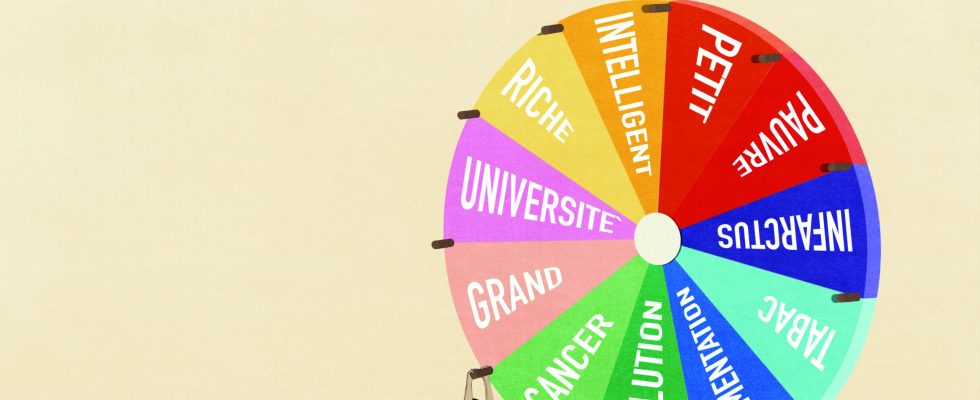The question goes back to Antiquity: innate or acquired? Initially philosophical, the discussion took a decidedly more technical turn. For a century, studies of twins and adoption have tried to identify the role of genetic and environmental influences. Today, it is an acronym, GWAS (for “genome-wide association study”), as well as a concept that seems to come from Welcome to Gattaca, polygenic scores, which arouse strong opposition even within the scientific community. Biologists, psychologists or statisticians differ on these fashionable methods, fruits of the democratization of genome sequencing.
The idea is to associate hundreds of genetic markers with human traits, whether height, diseases, or more politically sensitive characteristics, such as academic achievement and intelligence. For their detractors, one cannot separate genes and environment, in permanent interaction. According to their advocates, GWAS are a promising tool for more personalized and preventive medicine, while confirming the importance of genetic influence as well as socio-economic factors.
On the occasion of the publication of the book The Genetic Lottery by Kathryn Paige Harden, L’Express wanted to investigate this scientific battle, by interviewing numerous researchers, French and foreign. Make no mistake about it: beyond a methodological quarrel (exciting incidentally), this discussion concerns us all, as it touches on essential areas, from health to education. Some warn against the return of eugenic and racialist discourses justifying “natural” inequalities. Others assure that we cannot continue to ignore the fact that we are not all born identical. One thing seems certain: as the behavioral psychologist Robert Plomin reminds us, “genetic engineering has come out of its lamp, and even if we want it, we cannot contain it there”.
